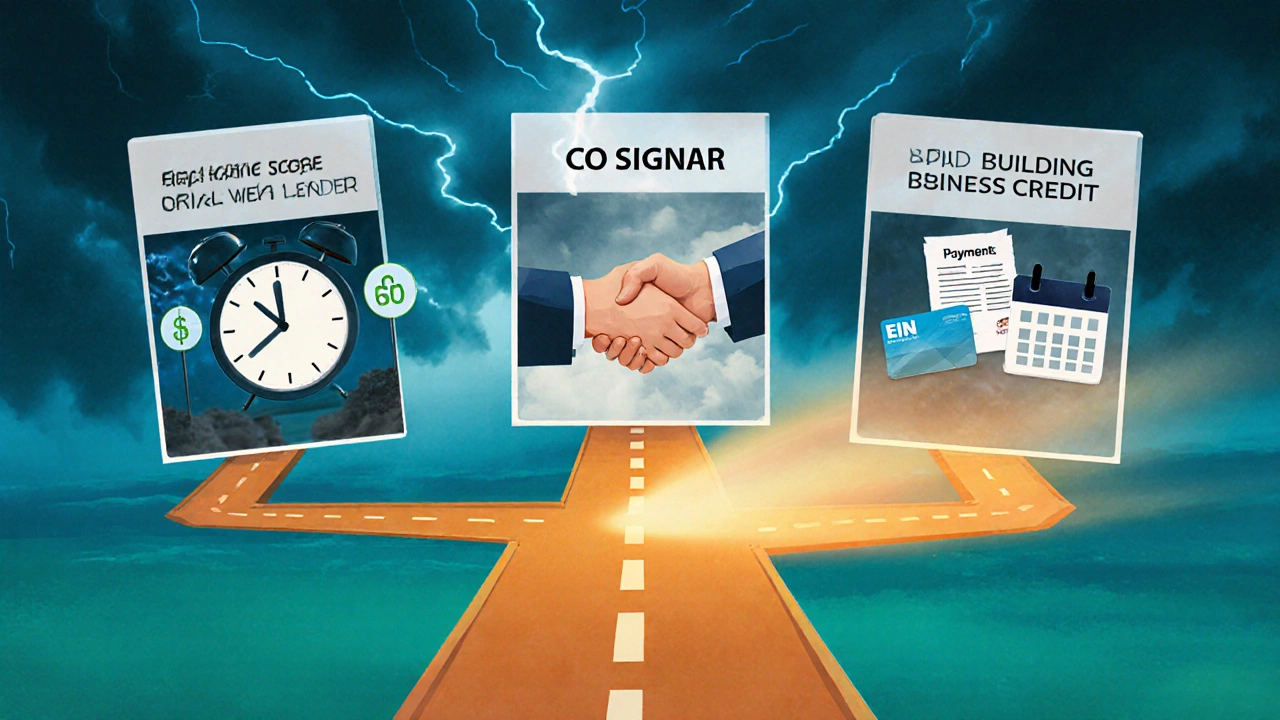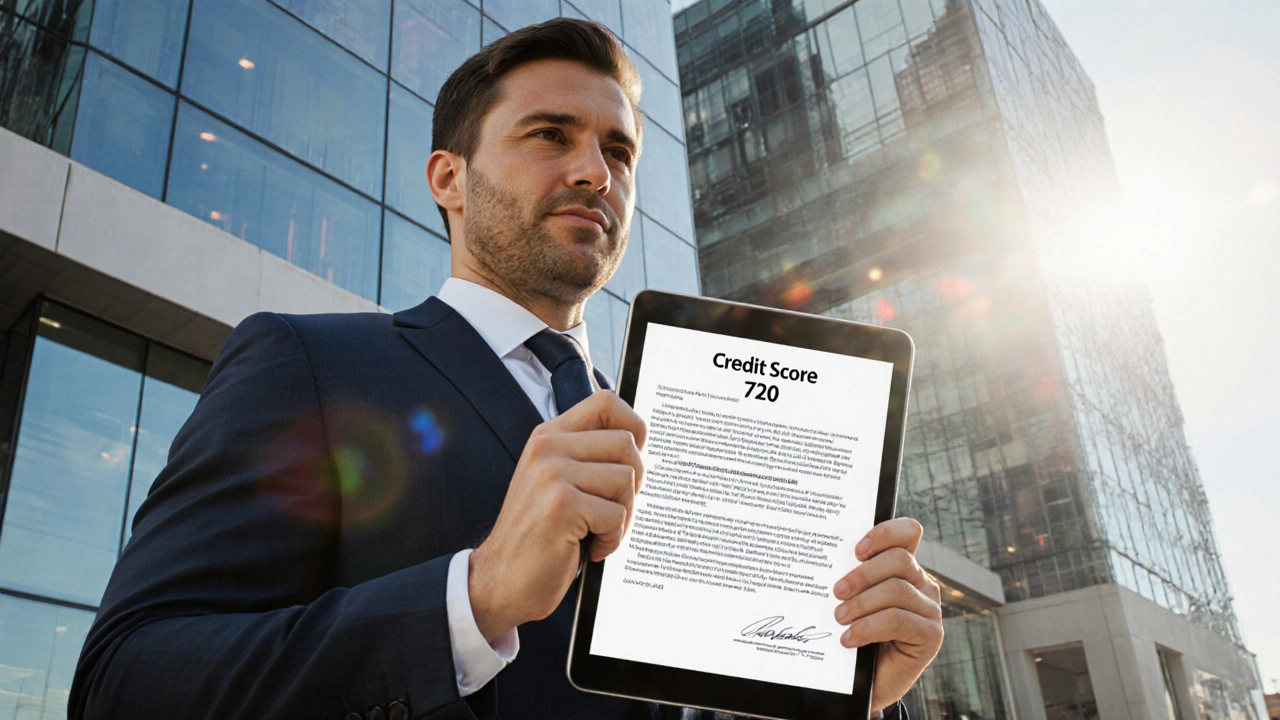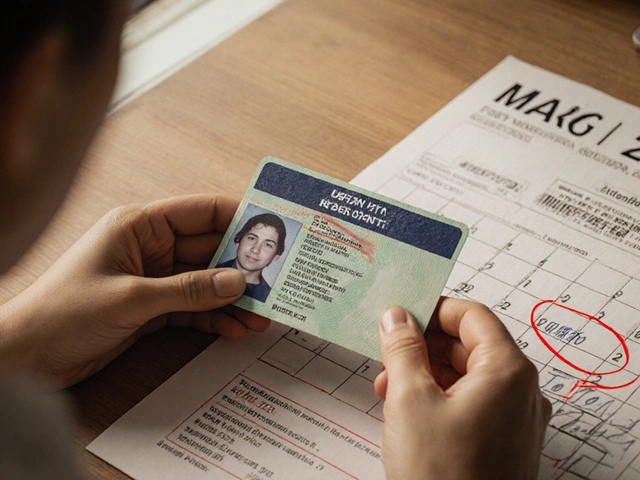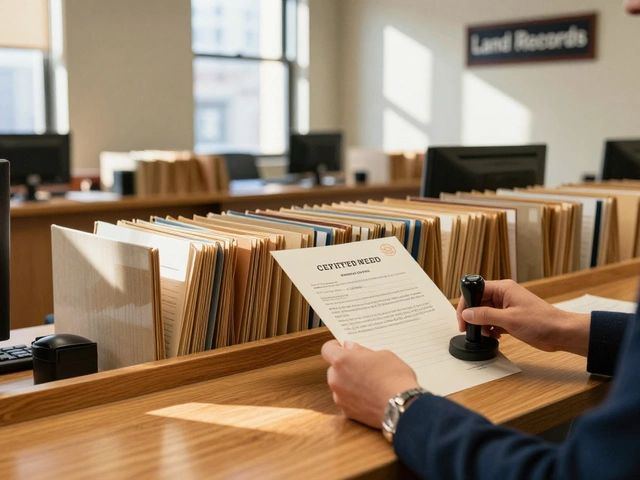Commercial Loan Calculator
See how different credit scores affect your monthly payments and total interest paid on a commercial property loan. Enter your property details below to calculate the difference between various credit score ranges.
Your Estimated Monthly Payment:
Based on a 25-year fixed-rate commercial loan
How Your Score Compares
Buying commercial property isn’t like buying a house. You’re not just looking at bedrooms and backyards-you’re evaluating cash flow, tenant stability, and long-term ROI. And the bank? They’re not just checking if you can pay your mortgage. They’re betting on your entire business plan. So what credit score do you actually need? It’s not a single number. But if you’re under 680, you’re already fighting an uphill battle.
There’s no magic number, but 680 is the floor
Most lenders won’t even look at your application if your personal credit score is below 680. That’s the unofficial cutoff for conventional commercial loans. Some hard money lenders might go as low as 620, but they charge higher rates and demand bigger down payments. If your score is in the 700s, you’re in the sweet spot. You’ll get better terms, lower interest, and more flexibility.
Why 680? Because commercial loans are riskier than residential ones. A single tenant moving out can tank your cash flow. A leaky roof on a retail center costs tens of thousands. Lenders need to know you’ve managed debt responsibly before. Your credit score tells them: Do you pay bills on time? Do you carry too much debt? Do you understand financial discipline?
It’s not just your score-it’s your whole financial picture
Let’s say you have a 720 credit score. Great. But if you’re carrying $200,000 in credit card debt and your debt-to-income ratio is 65%, lenders will still say no. Commercial lenders look at five things:
- Credit score - personal and business (if applicable)
- Debt service coverage ratio (DSCR) - your property’s income vs. its debt payments. Lenders want at least 1.25x.
- Down payment - usually 20-30% for commercial, sometimes more.
- Business financials - tax returns, profit and loss statements, bank statements.
- Property type and location - a grocery-anchored strip mall gets better terms than a standalone office building in a declining area.
One client in Adelaide bought a small industrial unit with a 695 credit score. How? He put 35% down, had three years of clean tax returns, and the property already had a five-year lease with a national retailer. His score wasn’t perfect-but his deal was solid.
Business credit matters, too
If you’re buying the property under a company name, lenders will check your business credit too. That means Dun & Bradstreet, Experian Business, or Equifax Business scores. You need a business credit profile even if you’re a sole trader. Many new investors forget this.
Here’s how to build it fast:
- Get an EIN (Employer Identification Number) if you don’t have one.
- Open a business bank account and use it for everything.
- Apply for a business credit card and pay it off in full every month.
- Pay your suppliers on time-some report to business credit bureaus.
- Keep your business credit utilization under 30%.
Don’t wait until you’re ready to buy. Start building business credit six to twelve months before you start looking at properties.

What if your credit score is below 680?
You still have options-but they come with trade-offs.
Option 1: Find a co-signer
If you have a family member or business partner with a 750+ score and strong income, they can co-sign the loan. Their credit and income get added to the application. But here’s the catch: they’re just as liable as you are. If the property fails, their credit gets hit too. Only do this if you have a rock-solid plan and full trust.
Option 2: Use a private lender or hard money loan
Hard money lenders focus on the property’s value, not your credit. They’ll lend up to 70% of the purchase price based on the asset. But interest rates? Often 10-15%. Fees? 2-5% of the loan. You’re paying for speed and flexibility, not affordability. These are short-term fixes-usually 1-3 years. Use them to stabilize the property, improve it, then refinance into a conventional loan once your credit improves.
Option 3: Partner up
Team up with someone who has better credit and capital. You handle the management. They bring the money. Split profits 50/50-or whatever you agree on. This is common in commercial real estate. Just get everything in writing: roles, responsibilities, exit strategy.
How to raise your credit score fast
If you’re serious about buying commercial property, don’t wait. Start improving your score now. Here’s what works:
- Pay every bill on time - even your phone bill and gym membership. Late payments hurt more than you think.
- Reduce credit card balances - aim for under 30% utilization. Paying down $10,000 in credit card debt can boost your score by 50+ points.
- Don’t open new credit - every hard inquiry drops your score a few points. Wait until after you get approved.
- Check your credit report - errors happen. Get free reports from Equifax and Experian. Dispute any inaccuracies immediately.
- Keep old accounts open - credit history length matters. Don’t close that old credit card just because you don’t use it.
Improving your score from 650 to 720 can save you tens of thousands over the life of a loan. One commercial loan in Melbourne for a $1.2 million warehouse had a 4.75% rate for the buyer with a 740 score. The buyer with a 660 score got 6.2%. That’s $1,100 more per month. Over 25 years? More than $330,000 extra in interest.

What lenders don’t tell you
Most people think credit score is the main hurdle. It’s not. The real barrier is cash flow. A property with a 750 credit score and no tenants won’t get funded. A property with a 680 score and a five-year lease from a Fortune 500 company? Lenders will fight to fund it.
That’s why smart buyers focus on the deal first. Find a property with strong tenants, low vacancy risk, and solid growth potential. Then fix your credit. Don’t do it backward.
Also, don’t assume banks are your only option. Credit unions, private investors, and even seller financing (where the current owner lends you the money) can be alternatives. Seller financing is rare in commercial, but it happens-especially with small, family-owned buildings.
Bottom line: Start with your score, but build the deal
You need at least a 680 credit score to have a realistic shot at a conventional commercial loan. But your score alone won’t get you the property. Lenders care about the numbers behind the property: rent rolls, tenant quality, location, and your ability to manage it.
Start now. Check your credit. Pay down debt. Build business credit. Talk to a commercial mortgage broker-they know which lenders are flexible and which ones aren’t. And don’t fall in love with a building before you know you can afford it.
Commercial property is a business. Treat it like one.
Can you buy commercial property with a 650 credit score?
Yes, but only through non-traditional lenders like hard money lenders or private investors. These options usually require 30-40% down, charge interest rates of 10% or higher, and come with short terms (1-3 years). You’ll need a strong exit strategy, like improving the property and refinancing later. Conventional banks will likely turn you down.
Does business credit matter more than personal credit?
It depends. If you’re buying under your personal name, your personal credit is what matters. If you’re buying under a company, lenders will look at both. But most lenders still require a personal guarantee from the business owner, meaning your personal credit score still plays a major role-even for LLCs and corporations.
How much down payment do you need for commercial property?
Typically 20-30%, but it can go as high as 40% for riskier properties like standalone offices or hotels. Properties with strong tenants (like pharmacies, banks, or grocery stores) may qualify for lower down payments. Your credit score also affects this-higher scores can sometimes reduce the required down payment.
Can you use a 401(k) or superannuation to buy commercial property?
In Australia, you can use a self-managed super fund (SMSF) to buy commercial property-but not your personal super. The property must be rented to a business you don’t directly control (you can’t rent it to your own company). There are strict rules, setup costs, and compliance requirements. Talk to a specialist SMSF advisor before moving forward.
How long does it take to improve your credit score for commercial real estate?
It can take 3-12 months, depending on your starting point. Paying down high credit card balances can raise your score in 30-60 days. Fixing errors on your report can take 30-90 days. Building a solid payment history takes longer. If you’re starting below 650, plan for at least six months of consistent, responsible financial behavior before applying for a commercial loan.





